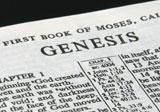Creation-evolution dispute really about progress vs. providence: visiting US philosopher
The continuing disagreement between Creationists and evolutionary science is fundamentally a debate about whether people believe in a life of "self-directed progress" or one where nothing can be accomplished without God's help, according to US philosopher, Michael Ruse, who will address the Australasian Evolution Society Conference at UNSW on Friday.


